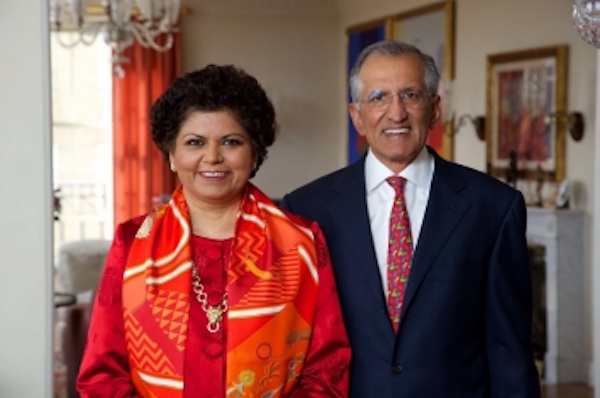
Defying the Supreme Court and saying she was acting “under God’s authority,” Ms. Kim Davis, a county clerk in Kentucky denied marriage licenses to gay couples on Tuesday [09/01/15]. Ms. Davis has preferred to go to jail, in contempt of court orders, than to do something that is against her religious belief, raising a pertinent question of ‘conflict between an employee’s employment obligations and employee’s religious obligations’.
Ms. Davis has filed an appeal against her ‘contempt of court order’ sentencing, now. A matter that would have been trivial otherwise, becomes a Tinderbox resulting in a celebrity status for Ms. Davis. Political candidates have jumped into fray, some strongly in support of Ms. Davis. Senator Ted Cruz of Texas said, “every Believer, every Constitutionalist, every lover of liberty to stand with Kim Davis.” Senator Rand Paul of Kentucky told CNN, “I think it’s absurd to put someone in jail for exercising their religious liberty.” Former Gov. Mike Huckabee of Arkansas said, “We must end the criminalization of Christianity!” Gov. Bobby Jindal told, The Huffington Post, “I don’t think anyone should have to choose between following their conscience and religious beliefs and giving up their job and facing financial sanctions”. Some other candidates, such as, Gov. Chris Christie (NJ), Sen. Lindsey Graham (SC) and Carly Fiorina, the former Silicon Valley executive, said that as a government employee Ms. Davis was obligated to carry out the law, despite personal religious objections. (‘Candidates Respond to Kim Davis Case With Varying Intensity’ By Trip Gabriel, The New York Times 09/03/2015)
Surprising, Bobby Jindal has dramatically changed his opinion from an earlier one. In 2009, when Louisiana’s Justice of the Peace Keith Bardwell refused to officiate an interracial couple’s wedding, Louisiana Governor Bobby Jindal called for Bardwell to be fired. “This is a clear violation of constitutional rights,” Jindal said in 2009. (‘Republican Supporter of Kim Davis Contradicts His Own Stance’ By Matt Baume THE BLOG 09/05/2015)
A few days back, the Council on American-Islamic Relations’ Michigan chapter filed a complaint with the Equal Employment Opportunity Commission (EEOC) challenging that a [Muslim] flight attendant was placed on administrative leave because she refused to serve alcohol to passengers. ‘The complaint accuses Express Jet Airlines of withdrawing its religious accommodation for the employee’. (…A Detroit-based flight attendant who objects to serving alcohol based on her religious beliefs as a Muslim. By Melissa Nann Burke, The Detroit News 09/01/2015).
On May 30, 2012, the Sikh Coalition and the Transit Authority reached a settlement in Federal Court that allows Sikh MTA workers to wear their turbans freely at work. (‘Sikh MTA Workers Relieved They Can Wear Turbans Freely’ By Smriti Rao 06/06/12 www.dnainfo.com)
In a recent case, a federal court has given Hofstra University student Iknoor Singh permission to enroll in the U.S. Army’s Reserve Officer Training Corps without shaving his beard, cutting his hair, or removing his turban. US district court judge Amy Berman Jackson issued the ruling, saying 20-year-old Iknoor Singh’s adherence to his religious beliefs would not diminish his ability to serve in the military. (‘Court rules New York Sikh student can serve in US army with beard and turban’ Associated Press 06/15/2015)
“In other such cases, Capt. (Dr.) Tejdeep Singh Rattan, a dentist, and Capt. (Dr.) Kamaljeet Singh Kalsi, a doctor, were told to remove their turbans and cut their hair and beards for active duty in the U.S. Army. However, in 2010, special exceptions to Army Regulation 600-20 were allowed so Rattan and Kalsi could wear their dastaars (turbans) and keep their unshorn hair and beards as part of their uniform, and also retain their other articles of faith. (Sikh Soldiers allowed to serve, retain their articles of faith By Steve Elliott www.army.mil News Archives United States Army 03/25/ 2010).”
In the U. S., freedom of religion is a constitutionally protected right under the First Amendment. Freedom of religion is also closely associated with separation of church and state. (Wikipedia) Title VII of the Civil Rights Act prohibits employment discrimination based on religion. A religious practice may be sincerely held by an individual even if newly adopted, not consistently observed, or different from the commonly followed tenets of the individual’s religion. (www.eeoc.gov)
This protection to the accommodation of religious beliefs did not exist in the original Title VII of 1964, and was incorporated in 1972. It was in Dewey v. Reynolds Metals Co ?(429 F.2d 324 (6th Cir. 1970), aff’d , 402 U.S. 689 (1971) that this omission was realized. Plaintiff, Dewey was an employee of defendant, Company. He became a member of the Faith Reformed Church, 10 years after working with the defendant. Plaintiff’s religious beliefs prevented him from working on Sundays, which were contrary to the collective bargaining agreement between employer and employees. Dewey refused to work on a Sunday, and filed a lawsuit against defendant. The U. S. Supreme Court denied relief to Dewey. That eventually resulted in an amendment to Title VII of 1964. This amendment of 1972, to Title VII, requires employers to reasonably accommodate an employee’s religious practices.
A common request for religious accommodation is modification of a work schedule due to conflicts with religious beliefs or practices. The problems sometimes arise in the workplace concerning religious observance when an employer discharges an employee for failure to report to work on what the employee considers a holy day. Federal law requires an employer to “reasonably accommodate” an employee’s religious observances, practices and beliefs unless the employer can show that accommodation would cause an “undue hardship” to the employer. Similarly, New York State law requires employers to permit workers to observe holy days, unless doing so would cause an “undue hardship.” Employers must also attempt to accommodate other religious practices, including religious dress and appearance requirements and prayer during the workday (www.ag.ny.gov/).
This ‘undue hardship’, somehow, has not been clearly defined in the statutes. In Trans World Airlines V. Hardison (432 U.S. 63, 1977), the Supreme Court ruled that an employer need not incur more than minimal costs in order to accommodate an employee’s religious practices. Accordingly, A reasonable accommodation is “subject to the limit of more than de minimis cost or burden.” If the employer claims that accommodation is not feasible because it would result in undue hardship, the employer must demonstrate an actual effect that accommodation would have on the business. An employee must notify his or her employer first regarding a request for a day off for religious observance for the employer to recognize that the religious observance will conflict with work. (EEOC Compliance Manual). The EEOC Guidelines provide detailed information on employer’s accommodation to employee’s on religious matters. (29 C.F.R. § 1605.2(d))
The Establishment Clause bars the government from advancing or inhibiting religion and ensures that government remains neutral. That government may not promote or affiliate itself with any religious doctrine or organization, may not discriminate against persons on the basis of their religious beliefs and practices, may not delegate a government power to a religious institution and may not involve itself too deeply in such an institution’s affairs. (County of Allegheny v. ACLU, U.S. S.Ct. (1989)). Prayer at meetings violates Title VII and establishment clause. (Warnock v. Archer 8th Cir. 2004). The court ruled that incorporating prayer into required meetings violates employees’ rights. [Requiring an employee to be present for unwelcome prayer would also violate Title VII, even if the employee were excused from the meeting, perhaps with consequences of missing out on important work information.]. Atheists are afforded the same protections under Title VII as those who belong to other “religious” beliefs. This protection is based on the theory that the law also protects the freedom not to believe. (Reed v. Great Lakes Companies, Inc. 7th Cir. 2003). Membership in the Klu Klux Klan is not protected “religious” belief. In Slater v. King Soopers, Inc. (D. Colo. 1992), the court concluded that “. . . the KKK is not a religion for purposes of Title VII. Rather the KKK is political and social in nature.” (Religion in the Workplace, By: Robert Gregg, Boardman and Clark LLP, Attorneys at Law)
Under Title VII, an employer has an affirmative obligation to maintain a work environment free of harassment, intimidation, and insult. In Harris V. Forklift Systems Inc., (114 S.Ct. 367, 371, (1993)), the Supreme Court held that harassment need “not seriously affect employees’ psychological well being” in order to be actionable under Title VII “so long as the environment would reasonably be perceived, and is perceived, as hostile or abusive.” The employer’s obligation extends to situations where he or she knows of the harassment or has reason to know of it and does nothing to correct the situation.
In EEOC v. Abercrombie & Fitch Stores, Inc. (Docket No. 14-86, Author Scalia, Opinion 06/01, 2015), ‘the issue was whether an employer can be liable under Title VII for refusing to hire an applicant or discharging an employee based on a religious observance and practice only if the employer has actual knowledge that a religious accommodation was required’. The court concluded, by 8-1 vote, that an employee’s (or prospective employee’s) failure to explicitly mention their religious beliefs or practices does not necessarily absolve an employer of the duty to explore accommodations. In this case, a practicing Muslim showed up for her job interview wearing a head scarf. The assistant store manager found the applicant qualified, but was concerned that her head scarf would put her in conflict with the company’s dress code (its “look policy”). The assistant manager believed, but did not know, that the applicant wore the scarf for religious reasons (she does). (‘EEOC wins Supreme Court case on religious accommodation’ By Paul Mirengoff in Powerline 06/02/2015).
The courts are flooded with numerous such cases. A recent survey of American workers suggests that religious discrimination is a growing workplace concern. (What American Workers Really Think About Religion: Tanenbaum’s 2013 Survey of American Workers and Religion 5/2013). Therefore, one is to maintain a ‘balance between one’s conscience and laws of this land’ at one’s workplace.
(The author works as an attorney with Anand Ahuja Associates, Attorney at Law and
International Business Consultants. He can be reached at anandesq@hotmail.com or via
phone (516) 502-3262, (718) 850-1952.)





America was founded on the basis of freedom of worship. If the basic foundation is lacking, than America will not be the America that the pilgrims dreamt about.